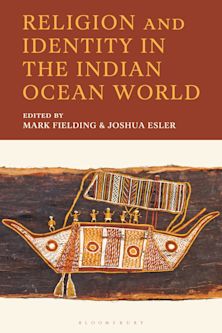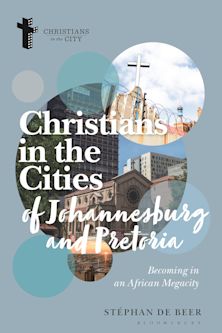- Home
- ACADEMIC
- Religious Studies
- History of Religion
- Gnosticism and the History of Religions
You must sign in to add this item to your wishlist. Please sign in or create an account
Description
Building on critical work in biblical studies, which shows how a historically-bounded heretical tradition called Gnosticism was 'invented', this work focuses on the following stage in which it was “essentialised” into a sui generis, universal category of religion. At the same time, it shows how Gnosticism became a religious self-identifier, with a number of sizable contemporary groups identifying as Gnostics today, drawing on the same discourses.
This book provides a history of this problematic category, and its relationship with scholarly and popular discourse on religion in the twentieth century. It uses a critical-historical method to show how and why Gnosis, Gnostic and Gnosticism were taken up by specific groups and individuals – practitioners and scholars – at different times. It shows how ideas about Gnosticism developed in late nineteenth- and twentieth-century scholarship, drawing from continental phenomenology, Jungian psychology and post-Holocaust theology, to be constructed as a perennial religious current based on special knowledge of the divine in a corrupt world.
David G. Robertson challenges how scholars interact with the category Gnosticism, and contributes to our understanding of the complex relationship between primary sources, academics and practitioners in category formation.
Table of Contents
Acknowledgments
Introduction: A Strange Charm
1. Against All Heresies: Gnosticism before Modern Scholarship
2. The Era of Gnosis Restored: Nineteenth-century Gnostics
3. The Alien God: Gnosticism as Existentialism
4. A Crack in the Universe: Jung and the Eranos Circle
5. No Texts, No History: Nag Hammadi
6. A Revolt Against History: Gnostic Scholarship After Nag Hammadi
7. Tongues and Misunderstandings: Messina 1966
8. Takes a Gnostic to Find a Gnostic: Contemporary Gnostic Groups
9. The Third Way: Gnosticism in Western Esotericism
10. Knowledge of the Heart: The Gnostic New Age
11. The Greatest Heresy: Jeffrey Kripal's Gnostic Scholarship
12. Elite Knowledge: Gnosticism and the Study of Religion
Bibliography
Index
Product details

| Published | 12 Aug 2021 |
|---|---|
| Format | Ebook (PDF) |
| Edition | 1st |
| Extent | 240 |
| ISBN | 9781350137707 |
| Imprint | Bloomsbury Academic |
| Series | Scientific Studies of Religion: Inquiry and Explanation |
| Publisher | Bloomsbury Publishing |
About the contributors
Reviews
-
The book covers a lot of ground at high altitude and high speed ... Gnosticism and the History of Religions presents a story well worth telling ... Particularly valuable is Robertson's choice to bookend the more well-trodden territory of twentieth-century Continental thought with the chapters on the nineteenth-century currents anticipating the History of Religions school and the reception of academic scholarship in contemporary Gnostic religious movements.
Journal of the American Academy of Religion
-
In this valuable volume, David G. Robertson critically analyzes diverse constructions of “Gnosticism” with impressive insight and skill. This book is a unique contribution and deserves a place as essential reading for anyone with serious interest in the topic of “Gnosticism” so-called.
Michael A. Williams, Professor of Comparative Religion and Near Eastern Languages and Civilization, University of Washington, USA
-
Both scholarly and accessible, David G. Robertson's book is challenging and original and will prove essential reading for students and scholars of “Gnosticism” alike for decades to come. David G. Robertson's work reconfigures how we speak about “Gnosticism,” but perhaps more importantly, how we speak about religion and spirituality in the contemporary world. A must-read!
Bernard Doherty, Lecturer in History, School of Theology, Charles Sturt University, Australia

ONLINE RESOURCES
Bloomsbury Collections
This book is available on Bloomsbury Collections where your library has access.



































